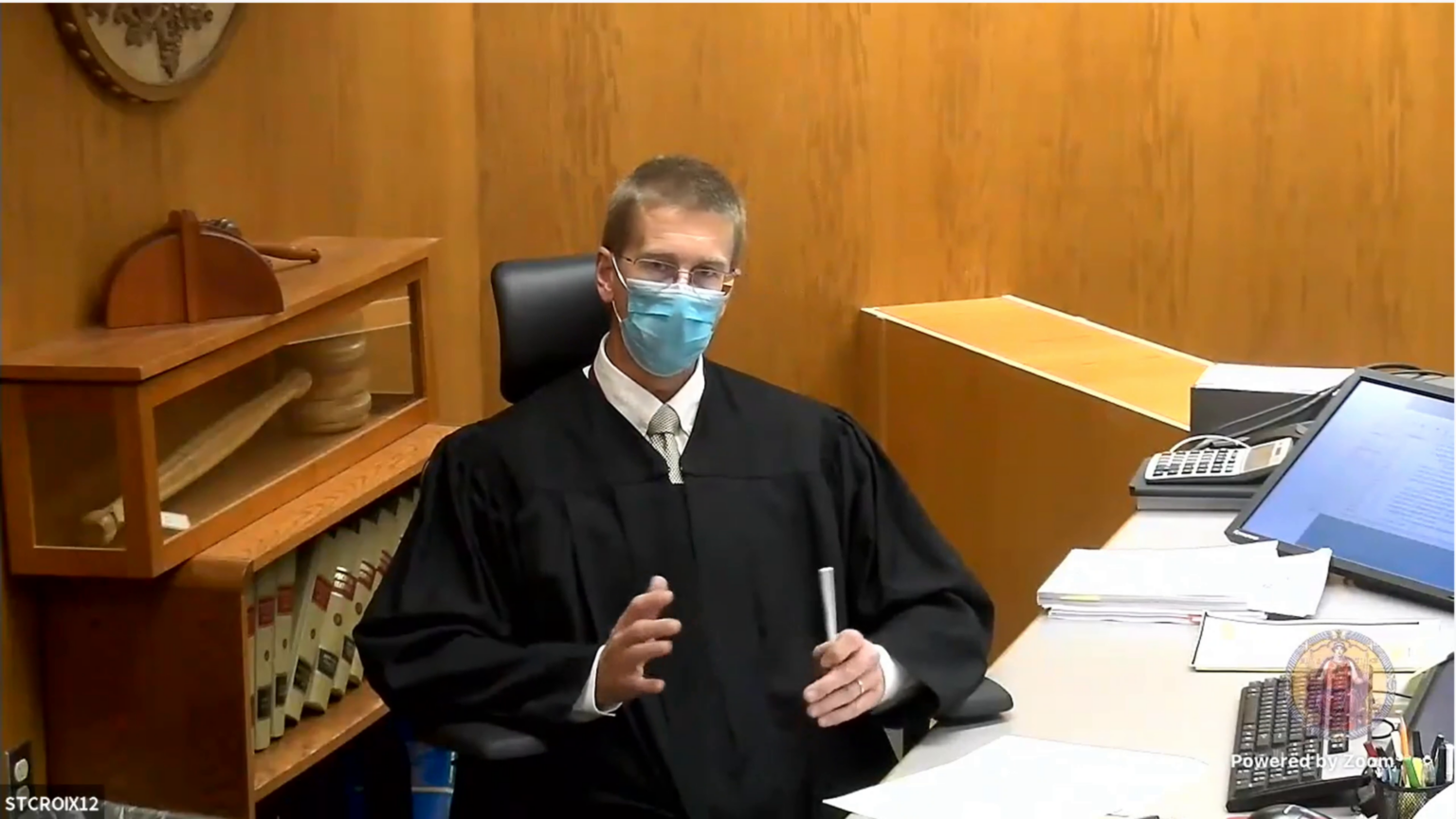Court Hears Challenge to Evers' Mask Order
October 5, 2020

St. Croix County Judge R. Michael Waterman hears a challenge to Gov. Tony Evers' emergency declaration and statewide mask mandate Oct. 5, 2020.
The current statewide mask mandate faced its first legal challenge in court Monday at a hearing in St. Croix County.
Plaintiffs represented by the conservative Wisconsin Institute for Law and Liberty wanted a county judge to file an emergency injunction to the governor’s order, claiming the governor does not have the legal authority to file successive emergency declarations.
Gov. Tony Evers declared a public emergency due to coronavirus in early August that lasted through the end of September. Last month, he issued another public health emergency starting in October. Both emergency declarations have empowered the governor to issue a statewide mask mandate.
St. Croix County Judge R. Michael Waterman said he would issue a ruling on the plaintiffs’ motion very soon.
During arguments Monday, a lawyer for the governor argued that the governor is empowered to declare emergencies as conditions warrant, even if the emergencies are related.
“Say you have a river that’s prone to recurrent flooding: it floods for five weeks, then it subsides for a few weeks, and then it starts rampaging across portions of the state,” Assistant Attorney General Colin Hector said. “It can’t possibly be the case that the governor needs to sit down and say, ‘well, golly gee, did the water subsided enough so that this represents a distinct disaster?’”
A lawyer for the plaintiffs argued however, that repeated declarations allow the governor to unconstitutionally rule by decree. Because the Legislature did not vote to extend the governor’s emergency declaration beyond the state law-prescribed 60 days, they rejected the notion that the emergency declaration should continue.
“The legislature has imposed an important check on that: state[s] of emergency may not exceed 60 days unless extended by joint resolution of the Legislature—no other exceptions,” said Anthony LoCoco for the Wisconsin Institute for Law and Liberty.
Waterman questioned the plaintiffs’ attorney whether the decision by the Legislature to not convene and overturn the governor’s emergency declaration should be seen as tacit approval by the Legislature for the governor’s actions.
“There will be times, for example, where the Legislature might be unable to agree on whether to rescind the declaration,” said LoCoco, “and even if they do rescind, the governor may simply tweak the emergency declaration and re-declare. And I think that’s why the Legislature created the framework that it did.”
Waterman acknowledged his ruling will likely be subject to appeal, which could end up in the 4-3 conservative-controlled state Supreme Court.
The hearing on the mask mandate comes the same day Wisconsin Republicans sought input from the state Supreme Court on an elections-related lawsuit that would allow absentee ballots to be received by clerks after Election Day.
A federal appeals court in Chicago ruled that the Republican-controlled Legislature did not have standing to appeal the lower court’s decision to extend the absentee ballot deadline. Lawyers for the Legislature asked the state Supreme Court to affirm that the Legislature does have standing—meaning it can represent Wisconsin in lawsuits of state interest.
The state Supreme Court is expected to issue a clarifying ruling this week on the issue of standing, kicking the decision back to federal court on whether to accept or deny the Legislature’s appeal. A similar case regarding the state’s April election was ultimately decided in the U.S. Supreme Court.
 Passport
Passport











Follow Us